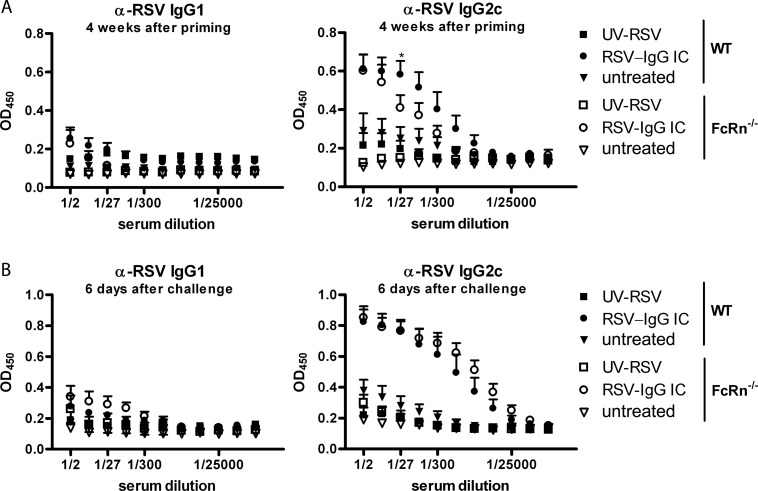Fig 4.
Intranasal administration of IC-RSV efficiently primes RSV-specific IgG2c responses in both WT and FcRn-deficient mice. WT mice and FcRn−/− mice were inoculated with UV-RSV or IC-RSV (palivizumab) at day 0. A third group was left untreated. At day 35, all groups were challenged with RSV. Blood was collected to analyze serum antibodies 7 days prior to RSV challenge (4 weeks after priming in panel A and 6 days after challenge in panel B). (A) RSV-specific IgG2c levels were significantly increased in both WT and FcRn−/− mice (P < 0.001) after inoculation with IC-RSV. However, the responses were lower in FcRn−/− mice compared to those in WT mice (*, P < 0.05 at 1/27 serum dilution). (B) At day 6 after challenge in both WT and FcRn−/− mice, virus-specific IgG2c levels differed significantly in IC-RSV-treated mice from nonprimed and UV-RSV-inoculated mice (P < 0.001), but no significant differences were found between the WT and FcRn−/− mice who received IC-RSV priming. These experiments were performed twice with similar results. Error bars represent the SEM of 5 individual mice per group. Significance was calculated using a two-way ANOVA.

